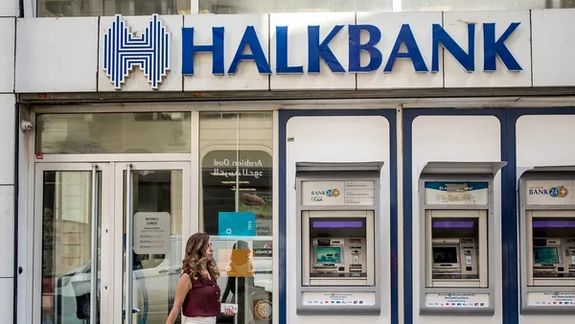Turkish Bank Reaches US Supreme Court Over Iran Trade Charges

The United States Supreme Court said Monday it would hear Turkish state-owned Halkbank’s case it has sovereign immunity against prosecution for Iran links.

The United States Supreme Court said Monday it would hear Turkish state-owned Halkbank’s case it has sovereign immunity against prosecution for Iran links.
The bank’s arguments, most recently presented to the court August, go back tocharges brought by New York federal prosecutors in 2019. The bank first went to the Supreme Court in January and was supported in submissions made in June by the governments of Pakistan and Azerbaijan.
Halkbank rejected arguments submitted by the US Justice Department July dismissing its claim to immunity. The bank’s submission cited a 1976 statute, the Foreign Sovereign Immunities Act, various court decisions, as well as “longstanding principles of international law… comity between nations…[and] centuries of this Court’s precedent.”
The case raised in 2019 alleged the bank had been involved in helping Iran transfer proceeds from oil and gas exports, in violation of US and UN sanctions. Prosecutors gave a figure of $19 billion, with at least $1 billion transferred through the US financial system. While US action against third parties dealing with Iran has no standing in international law, any involvement ‘evading’ US unilateral sanctions can be deemed a violation of US law.
Both the trial judge and an appeals court – the latter in October 2021 – have rejected Halkbank’s case that it holds sovereign immunity as a state-owned body. Judgement in the case now awaits a Supreme Court ruling.
The 2019 charges followed the 2016 arrest of Reza Zarrab, a Turkish-Iranian gold trader. Zarrab’s father reportedly knew former Iranian president Mahmoud Ahmadinejad, while Zarrab himself had links to those close to Turkey’s President Recep Tayyip Erdogan as well as to allies of President Donald Trump, including members of his administration. Zarrab was repatriated to Turkey in 2019.
Based partly on testimony from Zarrab, Mehmet Hakan Atilla, a Halkbank executive, was arrested in 2017, convicted in 2018 on several sanctions-related counts while acquitted of money laundering, sentenced to 32 months imprisonment, and released 2019.
‘Ugly unlawful’
Erdogan called the charges against the bank “ugly, unlawful,” and the case has long strained Washington-Ankara relations, which have been hit recently by the US ending an arms embargo on the divided island of Cyprus and pressing Turkey to cut economic links with Russia over the Ukraine crisis.
Turkey opposes unilateral US sanctions against Iran. Meeting Iranian foreign minister Hossein Amir-Abdollahian in Ankara in June, foreign minister Mevlut Cavusoglu also reiterated Ankara’s support for reviving the 2015 nuclear deal and for co-operation with Tehran against ‘terrorism,’ a reference to the Kurdistan Workers Party (PKK) and its Iranian offshoot Pejak.
Iran-Turkey trade fell from around $9.8 billion in 2018, the year the US left the 2015 Iran nuclear agreement and imposed third-party ‘maximum pressure’ sanction, to $3.4 billion in 2020, but appears now to be increasing.
Washington think tank The Foundation for Defense of Democracies, which advocates sanctions against Iran and opposes the 2015 nuclear agreement, has argued that “prosecuting Halkbank to the full extent of the law” shows “Washington’s commitment to denying impunity to Tehran’s accomplices [and] would encourage other foreign banks to comply with US sanctions…”